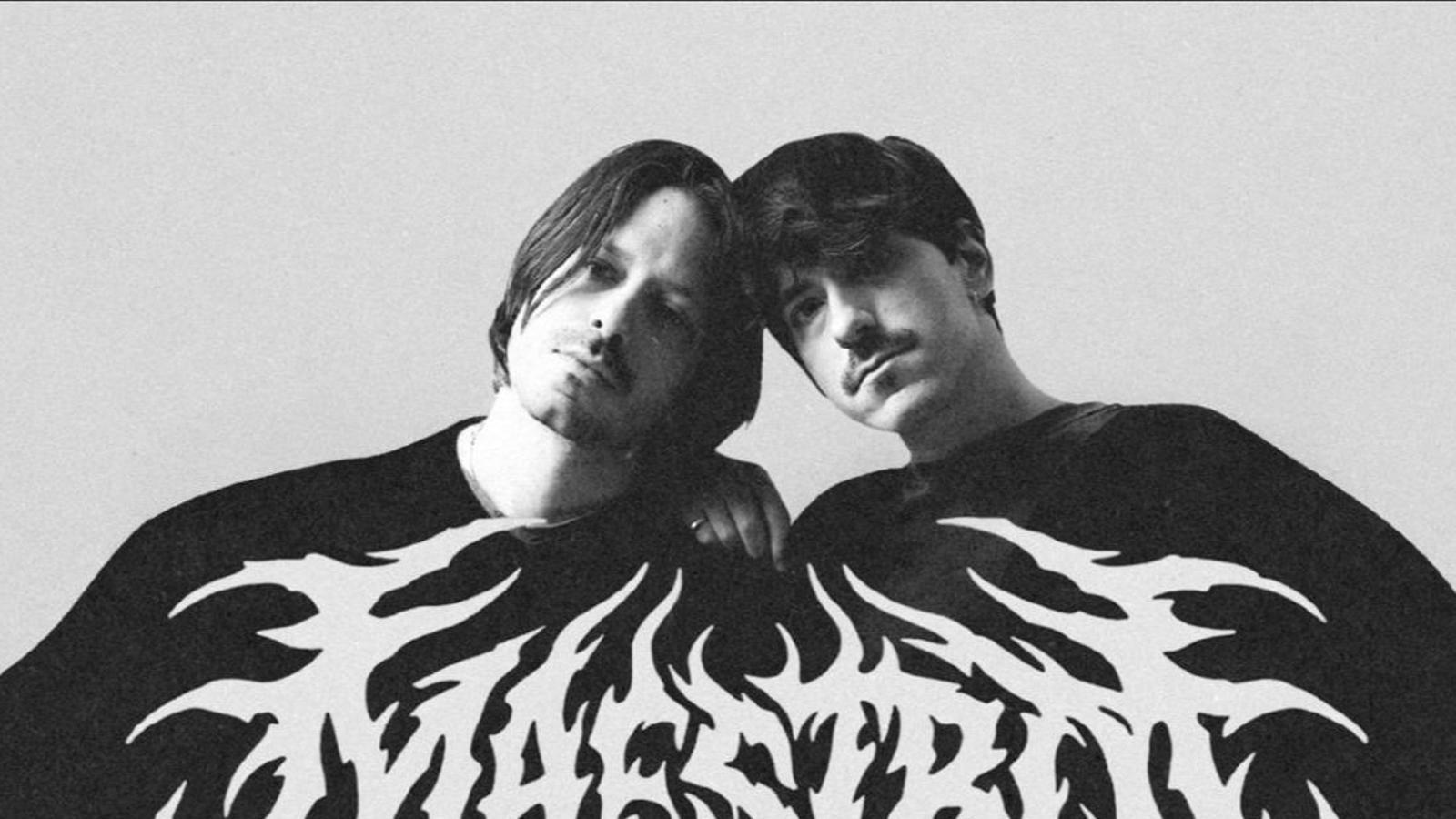Maestro Espada: "For the first time, we sang with a Murcian accent without fear in front of the microphone."
Music group


The Consolació de Sant Joan mountain will be the stage from which the Murcian brothers who form the group Maestro Espada will showcase everything they've learned from Murcian folklore to make their eponymous album, released last September. After three years of working with Raül Refree and many vibrant reunions, they have worked with intuition and learning from experts in traditional music. The album is forged with the roots of the orchard where Àlex and Víctor Hernández grew up, and with the avant-garde that emerges from error and experimentation. On Friday, July 11, they arrive in Mallorca with Luna en Verso, the festival of the Mallorca Literary Foundation. We spoke with Àlex about the project and the new horizons that discovering his town's folklore has opened up for them.
How was the Master Sword project born?
— We're brothers and grew up playing together. Our father also played and composed songs, though he never pursued it professionally. We lived in a rural area where there wasn't much to do, and music was the center of our lives. We had always thought about starting a project together. But when we went to school, we each moved to a different city, and the project was put on hold.
But the time has come.
— There came a time, during our stays at our parents' house, when we began to take an interest in Murcia's folklore. It had never been a major part of our lives, but it was a shared area of curiosity. It coincided with our return home, and we connected with the place with an almost visitor's perspective. Thus began the search: we spoke with groups of folklorists, discovering musical gems that weren't widely recognized. We didn't do it with a historical or documentary intent, but out of curiosity, because we had lived with our backs to this world.
When you compose, what comes first: the music or the lyrics?
— It all came together at once. We composed as we learned the instruments; it was a very vibrant time. We picked up the guitar from a very naive place, to play the "ternary stroke"And, since we didn't know how to do it well, other things came out, noisier or more distorted. In some way, musical elements or movements of Maestro Espada were born from playing Murcian instruments without knowing how to play them, from mistakes. As for the lyrics, there's a popular one all at once, which starts from a popular song and part of a popular song, we continued writing with themes that most identified us. We were inspired, above all, by 19th-century folklore.
What is the story behind the name Sword Master?
— It's a story of coincidences. Our father and his grandfather grew up in the town of Librilla. The grandfather played the lute and lived on a street called Maestro Espada. This maestro founded the town's first municipal band.
How has your knowledge of folklore influenced your way of working?
— Murcian folklore is a recent curiosity, but we don't feel like we're championing it like other musicians who are more deeply involved in it. We feel comfortable in other musical circles. We've now started a series of festivals and are writing new songs, but the tour will extend until spring. We don't know yet what the next project will be like, and that excites us. We share the idea of not wanting to repeat ourselves. For the first time, we're singing with a Murcian accent without fear in front of the microphone, and this will surely continue.
What does each brother contribute to the project?
— On this album, almost all the songs emerged from encounters, from the first spark: two guitars and a voice. After having lived apart, being together generated a very intuitive energy. We grew up listening to the same music, and despite forcing the difference in our voices a bit, in the end everything blends together. Perhaps I contribute more of the lyrics, and Víctor more of the melody. The creation is shared and collective, even though there are only two of us.
What has been the connection with the public?
— At first, we were curious. The album took a long time to make: we went into the studio with Raül Refree, and with his busy schedules, the album came together very slowly. Much of the tour was in cities other than Murcia, so we didn't have a feel for the people of our city. When we played at the Teatro Circo in Murcia, it was the first time we heard a strong connection with this place. At the concert, there were collaborations with people from there, and this album, because of its connection to the Murcian songbook, resonates especially in the city. In areas with greater tradition or greater awareness of their distinct culture, there was more interest from the beginning in "Murcian weirdness." We heard a lot of affection and interest from programmers in the Balearic Islands, Galicia, Asturias, the Basque Country, and Catalonia, more than in Andalusia, for example.
How has your exposure to Murcian folklore influenced you personally?
— It has connected us with people who have a deep love for tradition and music linked to the orchard and the landscape. These people share their perspective with great affection and generosity, probably due to the lack of media attention. They don't compete within the modern music scene or fight for attention; they live their own lives, and when you approach them, they give you everything. This is part of the Murcian character: since they're not used to visitors, when they do, they offer everything.
